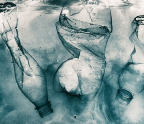Supplements for a healthy prostate

The usual treatment is pharmaceuticals, but these carry risks such as sexual dysfunction, breast enlargement, fatigue, decreased libido and headaches.
Fortunately, many natural approaches, such as diet, lifestyle changes and herbal or nutritional supplements, can be very effective, both for preventing and treating symptoms.
If you’ve been diagnosed with BPH, here are my top diet and supplement recommendations.
DIET
An increasing number of studies demonstrate a link between diet and BPH.1 The following are associated with higher risk of BPH:2
• high protein intake from animal sources (but not vegetable sources)
• high intake of unsaturated fatty acids, which contribute to damaged cell membranes and increased 5-alpha-reductase activity (the conversion of testosterone to DHT, which may fuel prostate growth)
• high intake of foods rich in saturated fat and high in cholesterol, which can promote inflammation
• high caloric intake, which can increase abdominal obesity and sympathetic nervous system activity
• intake of high-glycemic foods such as bread,
You’re reading a preview, subscribe to read more.
Start your free 30 days





